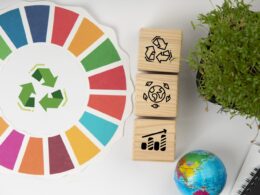The Global Reporting Initiative (GRI) has unveiled two new sustainability standards—GRI 102: Climate Change and GRI 103: Energy—aimed at enhancing corporate accountability and driving transparent, decision-useful climate disclosures.
Launched during London Climate Action Week, the new standards are designed to support businesses in aligning with science-based climate targets, disclosing energy use, and managing transition impacts. They are also fully interoperable with the GHG Protocol and IFRS S2 Climate-related Disclosures, streamlining global reporting requirements for organisations.
GRI 102 focuses on greenhouse gas (GHG) emissions reporting aligned with global climate goals, while also incorporating “just transition” metrics covering impacts on workers, communities, and Indigenous Peoples. GRI 103 addresses an organisation’s energy consumption, decarbonisation strategies, and the use of renewable versus non-renewable energy.
Robin Hodess, CEO of GRI, said the standards reflect the human and environmental dimensions of climate change: “GRI 102 and 103 will enable transparency and action on climate and energy impacts that drives decision-making by companies, regulators, investors, and other stakeholders.”
Carol Adams, Chair of the GRI Global Sustainability Standards Board (GSSB), noted that the standards support accountability for both mitigation and adaptation: “By disclosing transition plans in a consistent way, these standards advance a cohesive global system for climate reporting.”
The standards allow organisations to use IFRS S2-aligned disclosures on Scope 1, 2, and 3 emissions within GRI reports, reducing duplication. “This will enable companies to prepare just one set of GHG emissions disclosures… to meet the requirements in both standards,” said Sue Lloyd, Vice Chair of the International Sustainability Standards Board (ISSB).
The development process for the new GRI standards included a two-year multi-stakeholder consultation and global public comment period. Technical input came from experts in human rights, science-based targets, energy, and carbon markets.
GRI is also offering capacity-building resources, including training through the GRI Academy and practical FAQs to help organisations adopt the standards. Case studies from early adopters are expected later this year.
The new standards are also aligned with the European Sustainability Reporting Standards (ESRS) and the Science-based Targets initiative (SBTi), reinforcing global coherence in sustainability reporting frameworks.





















